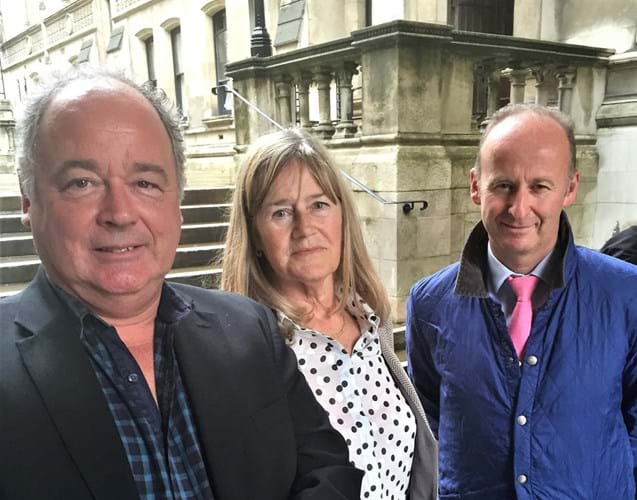
In the second day of a judicial review of the Ivory Act 2018, Sir James Eadie acknowledged the lack of “empirical evidence” linking the trade in antique ivory objects with modern poaching of the African elephant.
However the act would succeed in its aim of tackling modern poaching and show UK global leadership in the matter, Sir James argued.
The action has been brought by a group of dealers and collectors, formed into a limited company called FACT (Friends of Antique Cultural Treasures), ahead of the Ivory Act 2018 coming into force.
The FACT case is based on two arguments: that the act is contrary to EU law, which allows trade in pre-1947 ‘worked’ ivory, and on ‘proportionality’ grounds, that the act goes too far in denying owners of antique ivory their property rights.
On Thursday it was the turn of the government’s side to argue their case, after day one of the hearing was largely given over to FACT’s arguments.
At the close of Wednesday’s proceedings, Mr Justice Robert Jay indicated that FACT’s first ground of EU law compatibility had not been proven but that proportionality "was what this case is all about".
'Existing laws not working'
On Thursday, Sir James argued the act was necessary because data from 2007-2014 on the numbers of African elephants killed for their ivory suggested that legal controls needed to be global in nature, adding to existing prohibitions in place in the US and China.
The new UK ivory law would curb the use of “the lawful trade to mask a trade in items containing poached ivory,” he said.
On the act’s likely impact on owners of ivory, Sir James said that “people can continue to enjoy [antique ivory objects], collect them and appreciate their beauty and refinement, if that floats their boat”.
'Impact purely financial'
The act’s effect on owners would be “purely financial”, he said, adding that owners and dealers had been given “a long window to sell their item…in the end about two years” in which to sell their collection or stock.
"When the act comes into force, they won’t be able to sell them – that is the purpose of the act.”
In reply, FACT's barrister Thomas de la Mare QC said the government's arguments were "not substantiated", especially that suggesting "high quality, high end antiques [with ivory] valued for their artistic merit provide a mask for the illicit trade [in modern poached ivory].
De la Mare argued the act contained inconsistencies, such as the exemption for musical instruments including pianos, made up to 1975, that contain ivory keys which can then be fashioned into photo frames.
He added that dealers and private owners had been obliged to hold "fire sales" in order to dispose of antique ivory ahead of the prohibition.
In place of the Ivory Act 2018, de la Mare said, FACT was proposing a registration system for ivory antiques similar to that proposed in the act, that would ensure the removal of modern ivory "tat and trinkets" from the market.
'Revulsion at poaching'
Mr Justice Robert Jay said he understood the antique trade’s abhorrence of modern poaching, commenting that “everybody in the world feels revulsion at poaching and feels the need to preserve animals - no one in this court would say otherwise”.
He added that "the economic pressures causing to people in Africa to kill elephants are overwhelming".
Draft judgement
A draft judgement will be given in confidence to lawyers for both sides before October 31. No date was set for the full, public judgement though sources suggest it may come in early November.
Present at the hearing were FACT directors Paul Moss, former owner of Sydney L. Moss and ivory collector together with dealers Rosemary Bandini and Alastair Gibson.
Paul Moss told ATG at the end of the hearing: “The Ivory Act is a bad law, poorly conceived and not proportionate."
He praised the work of FACT's QC during the case and Mr Justice Robert Lay: "We couldn't have expected more from the judge. He was clearly engaged and sympathetic to our arguments on the proportionality side."





